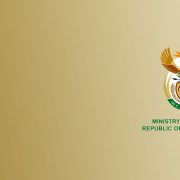|
Getting your Trinity Audio player ready...
|
By
State capture does not happen because of the dodgy dealings of one person or even a handful of people. It happens because hundreds of people along the line — in the public and private sectors — have enabled it. They may have failed to conduct requisite due diligence or to ask questions about suspicious requests. They may have turned a blind eye to suspicious behaviour and transactions or they may have voluntarily participated in corrupt or suspicious activities for private gain of money or power.
The list of people and actions that have been required to oil the state-capture machine, directly and indirectly, is potentially endless. The narrative of the state captured by President Jacob Zuma and his group of elites takes away from and does not acknowledge the participation and contribution of scores of people who work in administrative positions in the state or private sector: consultants, lawyers, estate agents, bankers, dealers in luxury goods, hospitality staff, travel agents, secretaries, company secretaries, administrative staff of every size and shape and others too countless to mention here.
They may not even be aware of their complicity. But whether they were part of or privy to corrupt or irregular deals that they conveniently ignored or whether they saw an invoice that did not look credible, facilitated the transfer of goods and money or accepted work from dubious sources, overinvoiced or underinvoiced, they were cogs in the machinery.
What is becoming clear is that South Africa’s state has not merely been captured by a few elites, but has been enabled, wittingly or otherwise, by countless people and companies.
These occurrences bring into sharp focus the importance of the Financial Intelligence Centre Amendment Act (Fica), a piece of legislation that not only requires South Africa to meet various international obligations, but will, very importantly, introduce new definitions and standards that should pave the way for accountable institutions such as banks, estate agents and lawyers to better detect suspicious transactions and high-risk clients and report such information to the Financial Intelligence Centre for further investigation.
Because illicitly gained funds can enter and move through a financial system via enablers and intermediaries working with companies and other legal arrangements, these vehicles can be used to conceal or disguise the identity of the real person who ultimately owns, controls or benefits from them — the “beneficial owner”. This lends the money a semblance of legitimacy and makes it difficult to trace the origin of the funds.
These important issues are relevant to all South Africans because money destined for the formal economy for growth and development is instead directed to the private fortunes of a corrupt few. Fica is designed to thwart such illicit movement of money.
SA falling behind international standards
Fica was prompted by a 2009 Mutual Evaluation Report on South Africa by the Financial Action Task Force (FATF), an intergovernmental body that sets standards and develops and promotes policies to combat money laundering and the financing of terrorism. South Africa was found to be partially compliant with 14 of the 40 FATF recommendations and five of the nine special recommendations, and noncompliant with seven of the 40 recommendations.
The need to quickly bring into effect the amendment act, which would tackle these deficiencies, was identified as far back as 2009 and an initial deadline of June 2015 was set for the illustration of legislative changes that would facilitate compliance with FATF standards.
South Africa was later placed on a FATF watchlist because of noncompliance. During a scheduled review in February 2017, Treasury officials were unable to report fully on compliance because of the reservations the president lodged in relation to warrantless search provisions.
After some rather heated parliamentary hearings and rounds of submissions by statutory and private entities, as well as civil society organisations, the amendment bill was finally approved by Parliament on 22 February and signed into law by Zuma on 29 April.
Although Finance Minister Malusi Gigaba recently declared the immediate commencement date of some sections of the act, several exceptionally important sections — particularly those dealing with the definition of beneficial ownership and prominent influential persons, both domestic and foreign — will come into operation only by October and some by no later than October 2018.
In June, the standing committee on finance received updates from the Treasury and the finance ministry on steps taken to implement Fica as well as the reasonableness of any delays in doing so. The first round of public comments on the draft implementation measures are due by 12 July.
Some of the delayed provisions and schedules will have an effect, for example, on the requirement for accountable institutions, when opening bank accounts or engaging in business, to take a closer look at private and public sector people in significant positions of power (prominent persons) and expands the inquiry into their family members and close associates.
All accountable institutions will be required to implement risk management and compliance programmes in accordance with the size and nature of their business and to conduct in-depth checks on sources of money and transactional relationships. These, and various other duties, will enable institutions to better assess risky individuals and transactions.
Failure to do so attracts harsh penalties and sanctions and reputational risk. A similar approach is to be adopted in relation to foreign prominent influential persons.
FATF to pronounce on South Africa’s compliance
After its next plenary meeting scheduled to take place from 21 to 23 June, the FATF will issue a public statement on South Africa’s level of compliance with the recommendations. This will be a very important juncture for assessing compliance.
It will ascertain the reasonableness and necessity for the various delays and if a negative statement is issued, not only will South Africa be noncompliant with international best practices on curbing illicit financial flows, but its participation in the global economy is potentially threatened. A negative statement will call into question the security and credibility of South Africa’s financial and other accountable institutions, which will potentially affect correspondent banking relationships.
These issues should be of concern because the speedy implementation of this act, proper resourcing of the Financial Intelligence Centre and the capacitation of accountable institutions has an influence on whether South Africa’s banks and accountable and supervisory institutions will be properly equipped to tackle and detect illicit financial flows and thus have the ability to shrink the space available for corrupt actors, enablers and intermediaries to continue to oil the state-capture machine.
• Leanne Govindsamy is the head of legal and investigations at Corruption Watch.








